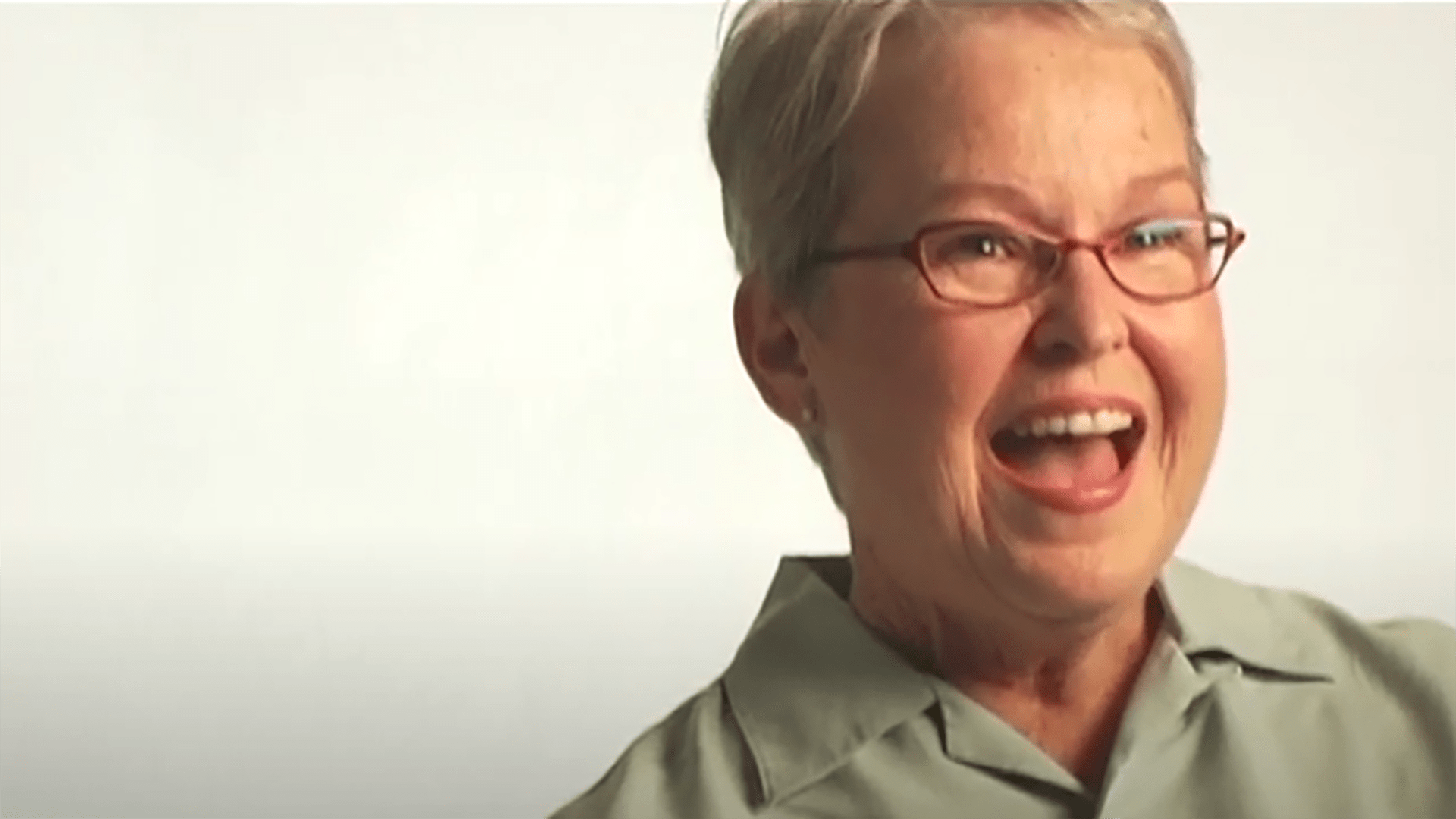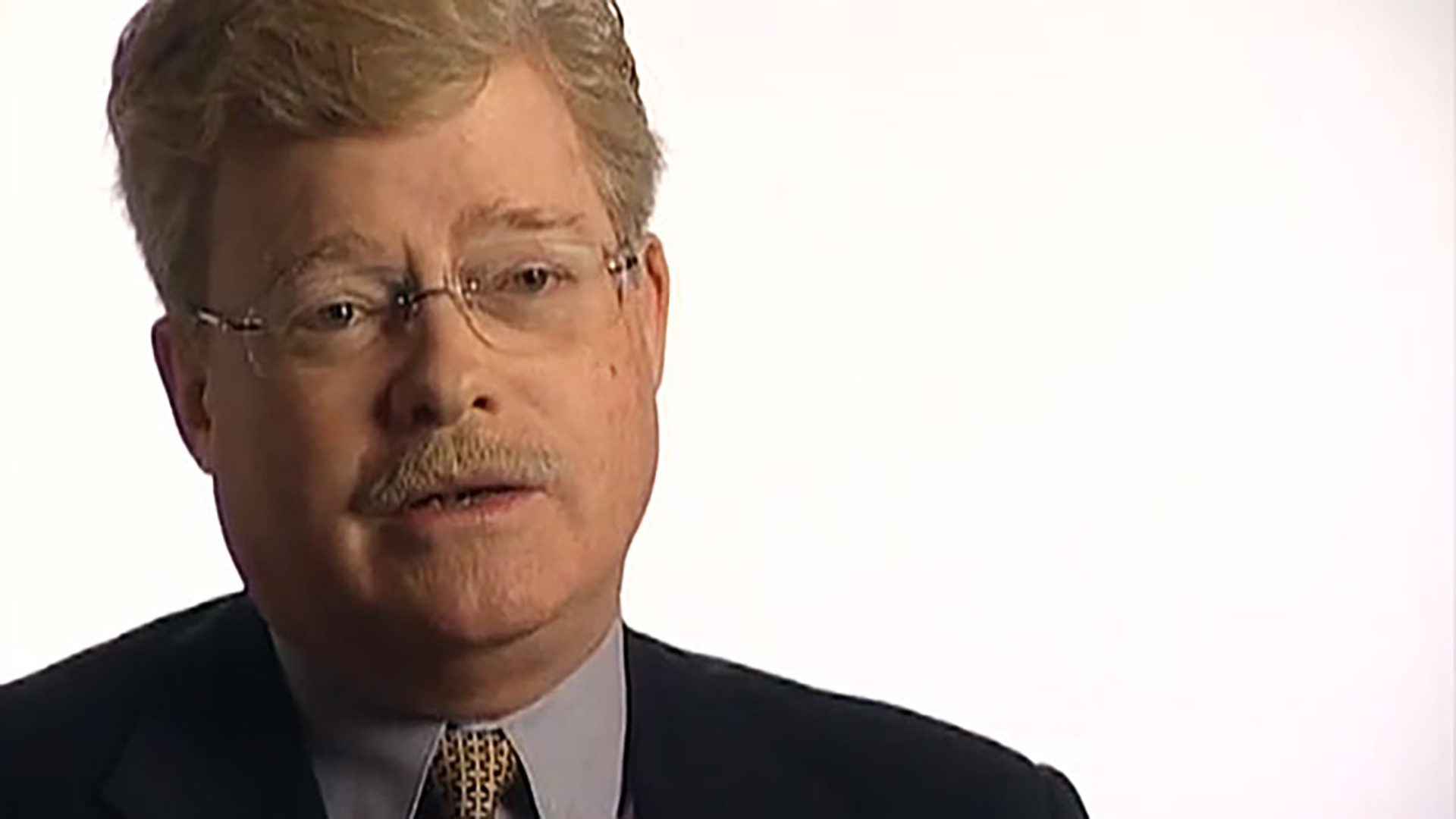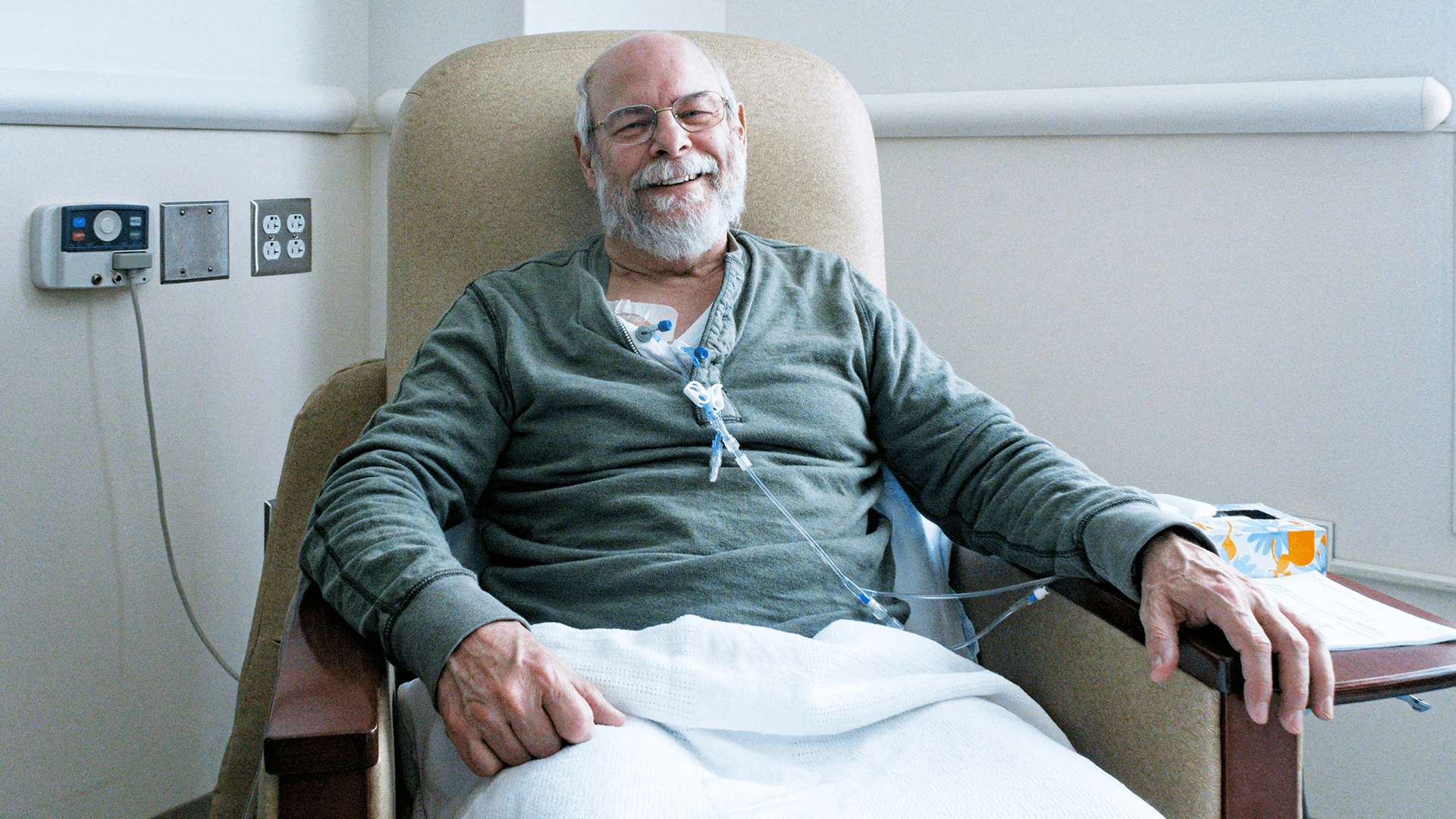Survivor Interview – Susan B.
Susan is a leiomyosarcoma survivor. She talks about aftereffects of cancer treatment, sexual dysfunction, and finding emotional support.

I became a survivor on December 23, 2001, when I was diagnosed with leiomyosarcoma.
In April 2001, I began to have some unusual cramping in my lower abdomen. I started seeing my doctor regularly for the cramping. She thought perhaps they were fibroid tumors, which are very common at my age. I showed that I had three. I was still on estrogen replacement medication, and she referred me to a gynecologist who changed that regimen so that I’d stop having my period. By October, I was really cramping and really started to be in more pain. My abdomen had really gotten quite large. By December, they decided that I should have a hysterectomy. I had a huge garden of tumors, and three of them were about ten centimeters each. Ten days later, I got the call that I had a rare kind of cancer called leiomyosarcoma. A month or so after I’d somewhat recovered from the hysterectomy, I started with chemotherapy. I was in the hospital when I was getting my chemotherapy. I had a cocktail of two different things. I did that for four sessions, and it was very, very difficult.
A year later, I had another sarcoma. It was the size of a small walnut, in my lower abdomen. I had cancer, but only in the one place. I had surgery. By that time, it was six weeks after my relapse, and the second surgery found that I had leiomyosarcoma. This time it was the size of a pigeon egg. It was in my lymph node, but it attached itself to my bladder. I had radiation after that surgery. That was 25 sessions, which sapped my energy, but compared to everything else, it was not too much. After I recovered from that, once again, I had chemotherapy.
Sometime after my first round of chemo, I looked at myself in the mirror and it was like, what’s happened? I looked down at my stomach and I said, “Something’s wrong here.” I showed my doctor and said, “Could this be I put on weight?” He said, “Of course you can put on weight.” And I said, “In one place?” And he said, “Yeah.” I also showed my surgeon, and he told me it was adipose tissue, which is bad. So I walked around or drug myself around with this thing. It was like I was eight months pregnant. When I had a CAT scan after I was finished with everything, I discovered that I had a very large hernia underneath my surgical incision. So I had to have that repaired. My oncologist wanted me to wait two years, and the surgeon said, “Absolutely not.” I have to say that was probably one of the more difficult things that I’ve ever been through. It was really horrendous, but I’m now the Kevlar lady. I have a large piece of Kevlar, about the size of a dinner plate, under my incision.
When I was recovering from that last surgery to repair my hernia, I had a mammogram that showed that there was something suspect. I had a lumpectomy, which was a piece of cake compared to everything else. It was pre-cancerous. This time, though, there was research, and I was able to make a really good, informed decision with my doctor about the treatment for that. I am taking something every day for that. That really set me back.
They took a piece of my bladder. I have a much smaller bladder. It’s better now, but I do have some incontinence with that. The medication that I’m on for the cancer does cause some bowel problems. Also, that could be partially from all the surgery I’ve been through. Anytime they mess with your bowels, who knows if they’re ever going to be the same again. If I’m going to be on long trip or some place that I’m not free to get up whenever I want to, I will use Depends. That seems to help. In case anything happens, I’m fine with that. I just check out where the restrooms are before I go anywhere. I’ve been doing Kegels for a long time. I’ve known about those since I had children 30-some-odd years ago. I try to be vigilant on that. One of my nurses told me that she could really give me some good exercises, but the way she said it, I thought, “I’m not quite ready for that yet.” Maybe next year I’ll go after her real hard-core exercises. One step at a time is part of how I’ve dealt with all of this.
Another one of the physical things that is left over from all of this is my sex drive. Most likely the radiation affected my sensitivity. I really have very little feeling anymore. That’s been really hard. Of course, not being on estrogen and having something that kills all the estrogen, my body is like a dried-up prune. The money that I spend on body cream is quite outrageous trying to take care of that. Also, intercourse is very difficult. That’s probably the saddest thing that I have is dealing with that. Luckily, I’d had many wonderful years and you make do in different ways. I talked to my surgeon, who said, “You use Replens and that’s all you can do.” I let it go at that. Then I finally thought, “There are other people in the world to talk to.” I talked to both my oncologists, who did give me something else. He said that my leiomyosarcoma is not affected by estrogen. So he did give me something that has helped a lot.
This is my second marriage, and I’ve been married 16 years. Luckily, we have a wonderful relationship, where we’ve been able to talk about everything. So that made it easy. I have two grown biological children and my stepson. We’re all a big family, and I have great relationship with all of them. So that has been helpful. But probably the hardest thing was feeling so narcissistic. “This is all about me.” We laughed about it, and sometimes we’d go, “Just a minute, eyes on me, so I can talk about how I’m feeling, what’s wrong with me and how my feet hurt.” ’Cause they still hurt. So humor has helped carry me and my family through it.
The hardest thing was saying, “You’re gonna have to deal with your own worry and your own sadness.” I didn’t say that verbally, but I knew they did. My daughter and my husband probably cried on each other’s shoulders more than anybody else. They supported each other so they could support me. My two sons supported me as well, but they kept more of their own emotions inside of them. I know that my son had support from a good friend of his. In the middle of all of this, my ex-husband died. He got leukemia last year in July, and he died in September. That was a triple whammy for my kids. That was really tough, and I had to grieve him, surprisingly. That was real hard to be in chemo and to know what he was going through and what a short time he had.
Stress is there. Because this medication has really increased my hot flashes, if I get stressed, I can count on perspiration dripping down my face, not to mention, hands and everything else. That really is quite a nice monitor for me on my stress to say, “Cool it, Susan!” You calm down to find that piece of paper or if you’re going to be late. Instead of standing and waiting for the cable cars like I was doing, I started feeling myself getting tense, so I hailed a cab instead, and I would be here on time. Then learning techniques of being aware of where I’m stressed and to be able to relax those muscles quickly. I had already changed some things about my job, so that I could really do a good job without having to stretch myself so far for so many people. I think being aware of it and doing my deep breathing and all of those different things help. A lot of self-talk.
Live strong each day and really take advantage of today. Do not feel that you’re weak. You’re not. Physically, perhaps you are. I am. Remembering, pulling up a new word or a name or something doesn’t make me less strong than I was when I could remember every student’s name that I worked with. I think it’s just looking at things in a different way and making today and this minute count. I live strong by being aware that I have today. I live strong by choosing to be with people that I want to be with. I live strong by being selective in my life and not giving up pieces of myself to projects I don’t want to do or to do events I don’t want to do, to let people pull on me in ways that are not helpful to me. That is a part of how I live strong every day.
I’m Susan Berg, and I’m a three-year leiomyosarcoma survivor.

